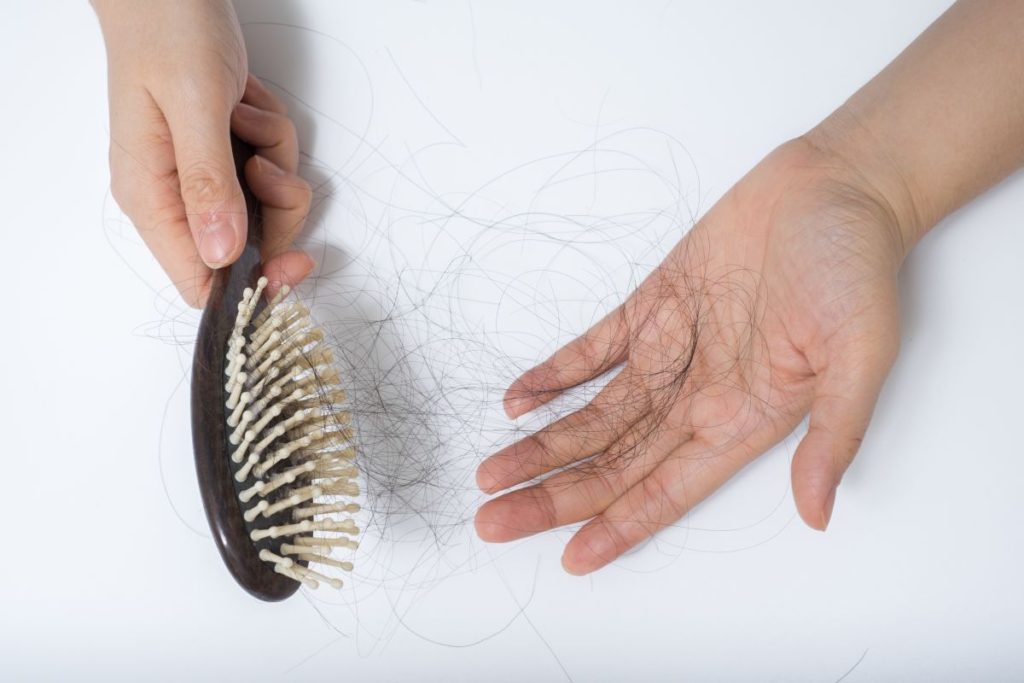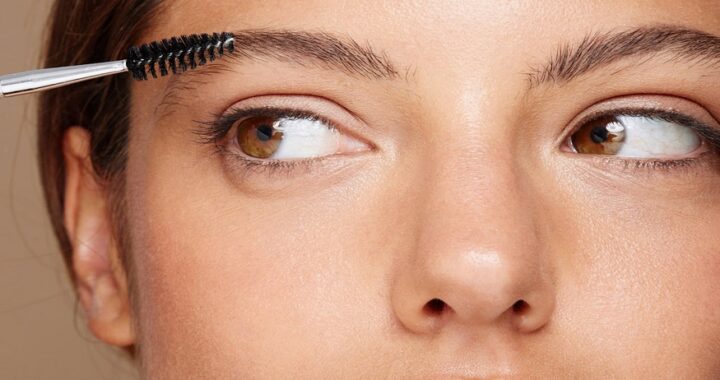Can stress cause thinning hair?

It’s very common for your hair to change its texture and thickness over a period of time. But did you know that hair loss is a common anxiety disorder symptom? Read on to know the relationship between anxiety and losing hair.
How stress can lead to hair loss?
When you’re stressed or anxious, your body produces the ‘fight-or-flight response.’ This is when your body produces additional hormones to prepare to deal with whatever it thinks of as being a possible hazard. When these additional hormones are produced, they can affect the hair growth patterns.
Different types of hair loss due to stress
Excessive physical or emotional stress like that associated with injury, illness or surgery can cause one of three types of hair loss:
- Alopecia areata
This stress-induced hair loss involves a white blood cell attack on the hair follicles. In this type of hair loss, the hair falls out within weeks (typically in patches). This can involve the entire scalp and even body hair. Hair may grow back on its own, but treatment might be required.
- Trichotillomania
Do you impulsively pull out your own hair from your head, eyebrows or other areas of the body? Well, a person typically develops this condition as a method of coping with stress, anxiety, depression, loneliness or boredom.
- Telogen effluvium
This is triggered by physical or emotional stress. It disturbs your normal hair growth cycle. The telogen phase of hair growth is when your hair stops growing and rests. This can last for up to four months. Telogen effluvium occurs when more hair than normal is pushed into the resting phase of growth. Various emotional and physical factors can cause this type of hair loss. It might occur after the death of a loved one or an alternative emotional stress or. Nevertheless, it can also be the result of physical stress caused by:
- Abrupt weight loss
- High fever
- Nutritional deficiencies
- Surgery
- Diseases like thyroid disease and anemia
Telogen effluvium might be caused by medicines like those used for gout and high blood pressure, as well as vitamin A taken in high doses. Other common causes of telogen effluvium are related to fluctuations in hormones triggered by prenatal period, menopause and use of oral contraceptives.
Does your hair grow back?
Hair thinning due to stress does grow back, but it can take quite a few months. You might not experience thinning hair soon after a stressful event. Mostly, there’s a three-month delay before you notice hair loss. It might take additional three months before your hair starts to grow back. This means that it might be six months or even longer before your hair returns to its former thickness.
How to reduce emotional and physical stress?
- Get enough sleep
Lack of sleep can contribute to both mental and physical stress, particularly if the sleep problems persist over a long period of time. It can disturb your diet, your performance at work and your overall mood. This, in turn, can lead to stress or anxiety-related hair loss. Improve your sleep by getting into a regular sleep pattern i.e., waking up and going to bed at the same time every day. You should get at least 7 to 8 hours of sleep a night. Avoid doing anything too stimulating before bed. Don’t watch any scary films or TV shows which will keep you awake all night. Stay away from the bright screen of your laptop and phone. Don’t exercise or eat anything just before hitting the sack. You can read a book or take a hot bath in its place.
- Follow a healthy diet
This gives your body more energy, allowing it to better cope with stress. Diet contributes to the strength of hair, making it less likely to fall out. Eat at least three well-balanced meals per day. Don’t skip breakfast, as it gets your metabolism going in the morning and helps to prevent cravings for unhealthy snacks before lunch. Avoid processed, sugary foods and those high in trans fats. In its place, eat more fruit and vegetables, whole grains, lean protein and foods high in monounsaturated fats like avocados, oily fish and nuts.
- Give your body time to recover after a major change
Major changes like surgery, an accident, illness or giving birth to a child can be very shocking for your body, even if you feel fine mentally. That’s why you often notice hair falling out three to six months after a major change. The hair loss is not permanent. Once your body recovers from the stressful incident, your hair starts to grow back.
When to see a doctor?
If your hair falls out in great amounts when you wash or style it or if you notice patchy hair loss, see your doctor. You might have an underlying medical condition like anemia or a thyroid disorder that hasn’t been diagnosed. A doctor can diagnose the medical conditions that cause hair fall.
Treatment for hair fall
The key plus of selecting homeopathy as the treatment for hair fall is the absence of any associated toxic side-effects. Also, homeopathic medicines are not disease-specific. They are suggested by your doctor only after he/she estimates your problem and your case in depth.
You can find a hair doctor near you! It is worth giving Dr Batra’s™ homeopathic treatment for hair fall a shot. Their expert homeopathic doctor will determine the original cause of hair loss and the apt homeopathic medicine is administered.
So, what are you waiting for? Visit the nearest hair clinic now!

 6 Tips to Get and Maintain Gorgeously Groomed Eyebrows
6 Tips to Get and Maintain Gorgeously Groomed Eyebrows  Laser Hair Removal: Your one-time solution for removing unwanted body hair
Laser Hair Removal: Your one-time solution for removing unwanted body hair  Essential specifications of Physiotherapy healthcare in Melbourne
Essential specifications of Physiotherapy healthcare in Melbourne  WHAT IS SLEEP APNEA AND WHY SHOULD YOU CARE?
WHAT IS SLEEP APNEA AND WHY SHOULD YOU CARE?  Tennessee Men’s Clinic Highlights the Transformative Power of Fitness on Men’s Lives
Tennessee Men’s Clinic Highlights the Transformative Power of Fitness on Men’s Lives  Behind the Scenes: A Day in the Life of a Veterinary Hospital Staff Member
Behind the Scenes: A Day in the Life of a Veterinary Hospital Staff Member  WHAT IS A VASECTOMY? EVERYTHING YOU NEED TO KNOW
WHAT IS A VASECTOMY? EVERYTHING YOU NEED TO KNOW